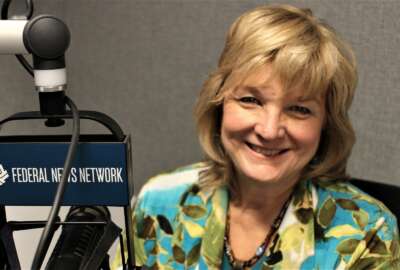

A reader asks a tough question: How long should a terminally-ill fed keep working to get the most from their benefits?
Worst case scenario: You are diagnosed with a terminal illness. It’s moving fast. You’ve made a career in government, you have a spouse and children. It is a horrible situation but it is real. And life will go on, for them. Now what?
I got an email Monday from a fed in the Midwest who said “I had an idea for a column that I thought I would share with you.” This not an HR exercise or a drill on civil service rules, benefits and regulations. This is, literally, about life and death, and doing right thing right up to the end:
“Over the past year I had two coworkers who were diagnosed with late stage cancer while still working. One was eligible to retire and is under the Civil Service Retirement System. The other is under the Federal Employees Retirement System, worked for 30-plus years, but I don’t know if eligible for retirement. Both had spouses. Both employees also had enough sick leave when they received the diagnosis to continue to be on the payroll for the months they had left.
“The question arises as to whether these people would leave their families in a better situation if they took sick leave until the end, or if they retired while they still can. It seems to be a pretty complicated calculation in terms of survivor benefits, life insurance and death benefits. Maybe your experts have some advice. One could still use it now.” — Asking For A Friend
So sad. But knowing the best option is important for the terminally-ill worker and his or her family. And time is sadly an important factor.
I turned to benefits expert Tammy Flanagan, maybe the hardest working person I know. Although on a brief beach vacation, she dropped everything for an immediate turnaround answer that hopefully helps all concerned. Knowing that the clock is ticking, she responded:
“If someone has sick leave it is best to stay on the payroll as long as possible to increase the surviving spouses benefit … [their] high three goes up, lengths of service goes up, earn more leave while using leave, [they] might get [a] pay increase, life insurance is at full value, [their Thrift Savings Plan] continues to accrue, Social Security goes up …”
The issue here is how can the terminally-ill career civil servant make a critical, end-of-life decision that’s best for their loved one’s. Fortunately the government benefit package provides a number of flexible benefits from sick leave including agency leave banks, disability retirement under the Civil Service Retirement System and Federal Employees Retirement System and workers compensation.
Tammy also passed on two columns she wrote earlier for Government Executive that explain the options in great detail. Please check them out and keep them on file.
On a happier note, she today’s guest on our Your Turn radio show at 10 a.m. EDT. Listen at www.federalnewsnetwork.com or 1500 AM in the Washington, D.C. area. We’ll discuss the best date(s) to retire this year and why.
By Amelia Brust
For a unique subway experience, consider taking the Aquarelle Train on Moscow’s Arbatsko-Porkovskaya Line, which features framed replicas of known paintings and is painted in watercolors on the outside.
Source: Altas Obscura
Copyright © 2025 Federal News Network. All rights reserved. This website is not intended for users located within the European Economic Area.
Mike Causey is senior correspondent for Federal News Network and writes his daily Federal Report column on federal employees’ pay, benefits and retirement.
Follow @mcauseyWFED


